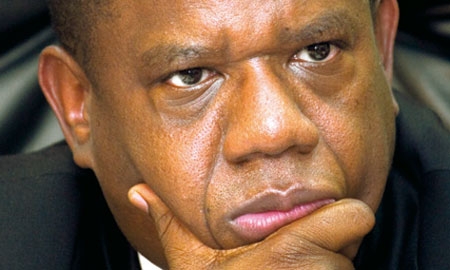Angola’s economic growth since 2002 has been impressive. From 2003 through 2008 GDP growth averaged nearly 17% per year, making it one of the three fastest-growing economies in the world for that period.
In 2009 Angola was affected by the global crisis that pushed economies around the world into recession, but by 2010 the country had already bounced back, with GDP growth of about 4%, and Angola is now poised for another long stretch of rapid economic expansion.
“GDP will grow 7.5% in 2011,” says Carlos Feijo, Minister of State and Head of the President’s Civil Office. The Economist Intelligence Unit forecasts an average annual growth of 7.4% over the next five years, and the Angolan government predicts GDP to expand 15.5% next year.
As Africa’s second-biggest oil producer, Angola has a steady source of revenue to fund its post-war reconstruction efforts, a building program that is upgrading transportation, education, health and social welfare infrastructure and spurring growth.
The government is working hard to diversify and internationalize the economy as well, promoting investment in other industries such as tourism, timber, diamonds, gold, copper and other types of mining.
The oil industry has been by far the biggest contributor to growth in recent years, accounting for about 85% of GDP. Efforts to boost growth in the non-petroleum economy, though, are showing strong results.
“GDP WILL GROW 7.5% IN 2011.
THE GOVERNMENT IS TARGETING TO BRING THE INFLATION RATE DOWN TO 12%.”
CARLOS FEIJO, Minister of State and Head of the President’s Civil Office
|
The decline in the price of oil in 2009 led to a drop of 3.6% in the industry, compared to 5.2% growth of the non-oil sector. In 2007 the non-oil economy grew by 25.7%, and in 2008 by 11.7%. The non-oil sector should be a big contributor to economic growth this year, with an expansion of 11.2% according to the government’s forecast.
The progress already made on diversifying the economy has given it greater resilience. Even during the slower growth of 2010, more than 300,000 new jobs were created. Moody’s, Standard & Poor’s and Fitch all gave Angola’s sovereign debt risk notations for the first time, which were at a level equivalent to Russia and Brazil. This should help attract even more foreign investors and provide access to international debt markets.
In November 2009, the IMF approved a 27-month Stand-By Agreement (SBA) for Angola worth $1.4 billion to help the country cope with the effects of the global recession. The IMF approved the second and third reviews last September, thereby enabling the disbursement of about SDR 229.04 million ($353 million).
One area of concern is inflation. In 2008 consumer prices rose 13.2%, and the pace of the rise accelerated to 14% in 2009, and in October 2010 it was 16%. Given that the inflation rate has reached as high as 3,000% in the past, 16% is still a vast improvement. “The government is targeting to bring the inflation rate down to 12%,” says Mr. Feijo.
Efforts to get inflation lower are well underway and the economy is ready to return to the rapid expansion it enjoyed a few years ago, making Angola a country where foreign investors can expect to make healthy returns for years to come.

0 COMMENTS